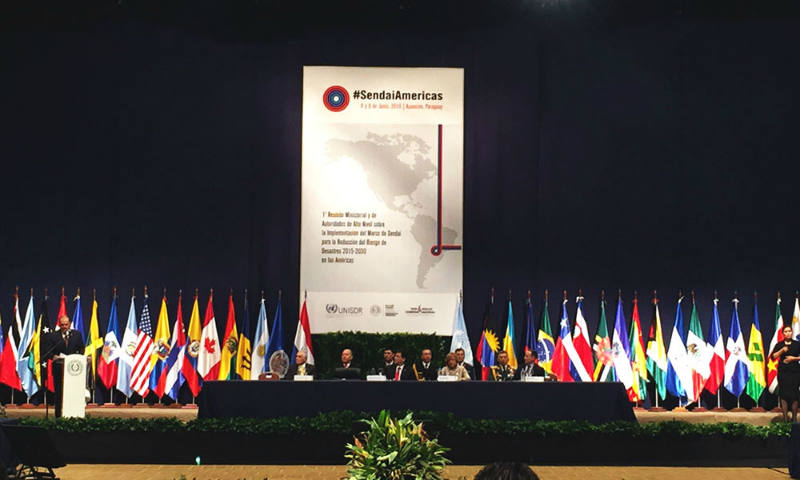
The international community needs “to demonstrate an inclusive, people-centred approach which engages the whole of society and all sectors,” said Robert Glasser, the Special-Representative of the UN Secretary-General for Disaster Risk Reduction.
Ministers and delegates from 35 countries met in Asunción, Paraguay, on 8-9 June 2016 for the very first high-level meeting on how to strengthen disaster response and build capacities in the Americas, long considered one of the world's most exposed regions. The main objective was the development of guidelines for a regional action plan that will encourage countries and communities to reduce the risk of disasters occurring and when they do to make sure people are prepared for the aftermath.
Addressing the First Meeting of Ministers and High-Level Authorities on the Implementation of the Sendai Framework for Disaster Risk Reduction 2015-2030 in the Americas, Mr. Glasser, who is also the head of the UN Office for Disaster Risk Reduction (UNISDR), called for more accessible efforts to reduce financial damage and to lessen social vulnerabilities.
In alignment with the 2030 Agenda for Sustainable Development to ensure that no one is left behind, a barrier-free environment is necessary to ensure full and equal participation in society by all, regardless of age, gender or ability. When compared to the general population, persons with disabilities, for example, face higher risks in emergency situations and are disproportionately affected by natural disasters. Available data reveals that the mortality rate of the disabled population is also much higher than that of the non-disabled population in many disaster situations. “One reason why a disproportionate number of persons with disabilities suffer and die in disasters,” says Yasunobu Ishii Director of The Nippon Foundation, “is because their needs are ignored and neglected by the official planning process in the majority of situations.”
The meeting featured an event on gender, youth and vulnerable groups that focused on the incorporation of people living with disabilities and the consideration of gender in national policies for Disaster Risk Reduction.
The Sendai Framework “recognizes the role of civil society including the private sector, women’s organizations, indigenous groups, persons living with disabilities, older persons, youth and academia because as we say, disaster risk reduction is everyone’s business,” noted Mr. Glasser.
To learn more about the meeting, please click here.
For more information about our work on Disability, please visit: www.un.org/disabilities
Source & Copyright: UN News & UNISDR
 Welcome to the United Nations
Welcome to the United Nations